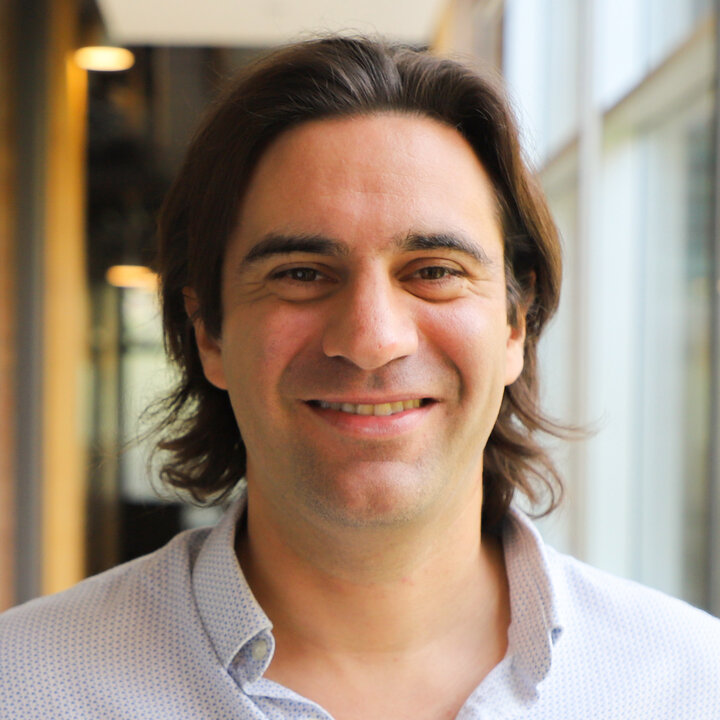
Patricio Grassini
Professor, Sunkist Distinguished Professor of Agronomy Agronomy & Horticulture University of Nebraska-Lincoln
Contact
- Address
-
PLSH 387
Lincoln, NE 68583-0915 - Phone
-
402-472-5554 On-campus 2-5554
-
pgrassini2@unl.edu
Area of Expertise: Plant Physiology, Weed, and Production Systems
Area of Focus: Crop Systems
Download Points of Consensus on Plant Nutrition in Indonesia
Education
B.Sc. (Agricultural Engineer). University of Buenos Aires, Argentina (2005)
Ph.D. (Agronomy). University of Nebraska-Lincoln (2010)
Research Interests
- Crop physiology
- Yield potential
- Yield-gap analysis
- Resource- and Energy-use efficiency
- Crop simulation models
Major Project Activities
Meeting demand for food, feed, fiber, and fuel in a world with a population of 9.8 billion people by 2050, without negative environmental impact or unsustainable use of natural resources, is one of the greatest scientific challenges of our time. Sustainable crop intensification on existing cropland area is therefore crucial to meet increasing food demand and relieve the pressure on cropland expansion. My research and extension programs focus on narrowing the existing yield gap between potential yields and current farm yields, while improving resource-use efficiency and producer profit and minimizing environmental footprint. In accomplishing the foregoing, my program leverages from expertise on crop modeling, spatial analysis, big data, and hypothesis-driven field experiments to benchmark productivity and environmental footprint of crop systems and to identify opportunities for improving both. My program aligns with the Institute of Agriculture and Natural Resources (IANR) goals relative to address priority issues facing agriculture and food industries in Nebraska and globally, provide the knowledge base essential for managing our natural resources, promote family well-being and community development, and educate future scientists. My research promoting sustainable crop intensification goes beyond Nebraska and USA, including cropping systems in South America, Sub-Saharan Africa, and South-East Asia.
A major project is the Global Yield Gap Atlas, which provides estimates of gaps between actual and potential yield for major cropping systems. Other major projects include an assessment of potassium and sulfur limitations to crop yields from local to global levels and assess trends in productivity and another one to identify opportunities to increase yields and efficiencies in the use of water and nitrogen in high-yield irrigated corn. I also lead a project on yield corn forecasting that provides real-time estimates of corn yield potential for the entire US Corn Belt region.
Recognition/Awards
- Fellow, Agronomy Society of America (2025)
- Stanford/Elsevier Top 2% Scientists List (2024)
- International Agronomy Award, Agronomy Society of America (ASA) (2024)
- List of Highly Cited Researchers (top 1% in the discipline in the world) during the past five years. Web of Science (2019-2024)
- UNL Sunkist Fiesta Bowl Distinguished Professorship in Agronomy (2022)
- Gamma Sigma Delta (GSD) Research Award, GSD Nebraska Chapter (2022)
- Omtvedt Innovation Award, UNL (2021)
- W.L. Nelson Award for Diagnosing Yield-Limiting Factors, Agronomy Society of America (ASA) (2020)
- Agronomy Society of America (ASA) Early Career Award (2016)
- Member of Science Advisory Council for Field to Market (since May 2016)
- Junior Faculty Excellence in Research Award. University of Nebraska–Lincoln (2015)
- Member of the Editorial Advisory Board of Field Crops Research and Global Food Security journals
- Water for Food Institute Fellow
- Center for Great Plains Studies Fellow
- ASABE Blue Ribbon Award, Educational Aids Competition (2013)
- Fulbright Scholar (2007-2009)
- Maude Hammond Fling Fellowship. University of Nebraska–Lincoln (2009-2010)
- Widaman Distinguished Graduate Assistant Award. University of Nebraska–Lincoln (2009)
- Gerald O. Mott Meritorious Graduate Student Award in Crop Science. Agronomy Society of America (2009).
- William J. Curtis Endowed Fellowship. University of Nebraska–Lincoln (2007)
- Diploma of Honor. University of Buenos Aires (2006)
Publications
Google Scholar publication list
- Couëdel A, Lollato RP, Archontoulis SV, Tenorio FA, Aramburu-Merlos F, Rattalino Edreira JI, Grassini P (2025). The inadequacy of statistical approaches to estimate yield potential and gaps at regional level. Nature Food 6, 715–724.
- Moss R, Fairhurst T, Grassini P (2025) An enhanced genetics x environment x management framework for yield intensification. Nature Food 6, 127–129.
- Sugianto H, Donough CR, Monzon JP, Sunawan, Pradiko I, Lim YL, Tenorio FA, Rizzo G, Rahutomo S, Agus F, Marwanto S, Slingerland M, Cock J, Grassini P (2025). Improving yield and profit in smallholder oil palm fields through better agronomy. Agricultural Systems 224, 104269.
- Carciochi WD, Dobermann A, Cafaro La Menza N, Brouder SM, Donough CR, Heuschele DJ, Oberthür T, Sandaña P, Shehu BM, Pereira TS, Soratto RG, Volenec JJ, Wandri R, Wang Y, Win SS, He P, Grassini P (2025) Quantifying potassium requirement and removal across crop species. Field Crops Research 322, 109717.
- Aramburu-Merlos F, Tenorio FAM, Mashingaidze N, Sananka A, Aston S, Ojeda JJ, Grassini P (2024) Adopting yield-improving practices to meet maize demand in Sub-Saharan Africa without cropland expansion. Nature Communications 15, 4492.
- Rizzo G, Agus F, Susanti Z, Buresh R, Cassman KG, Dobermann A, Agustiani N, Aristya VE, Batubara SF, Istiqomah N, Oberthür T, Pasuquin J, Samijan, Witt C, Grassini P (2024) Potassium limits productivity in intensive cereal cropping systems in Southeast Asia. Nature Food 5, 929–938.
- Aramburu-Merlos F, van Loon MP, van Ittersum MK, Grassini P (2024) High-resolution global maps of yield potential with local relevance for targeted crop production improvement. Nature Food 5, 667–672.
- Yuan S, Saito K, van Oort PAJ, van Ittersum MK, Peng S, Grassini P (2024) Intensifying rice production to reduce imports and land conversion in Africa. Nature Communications 15, 835.